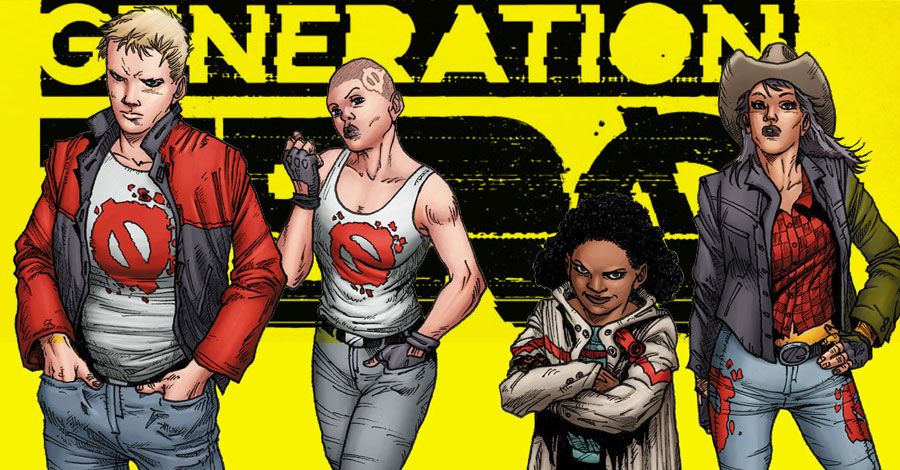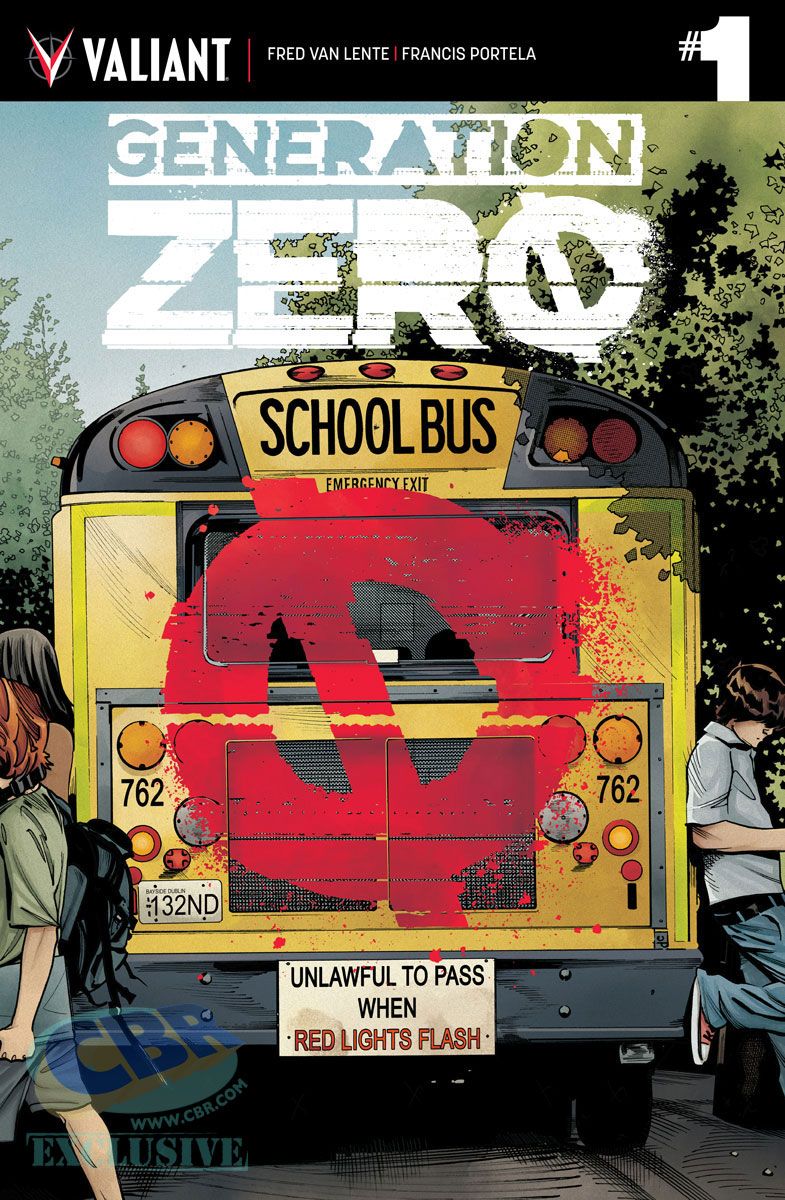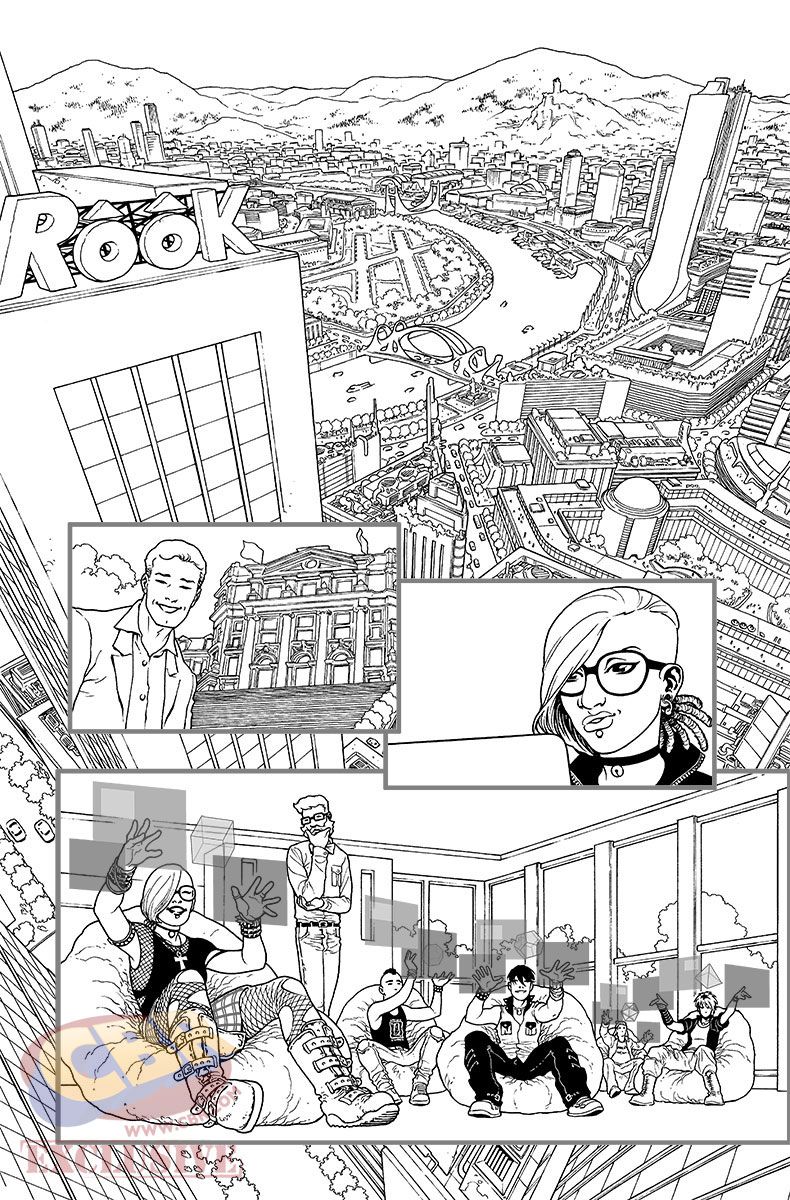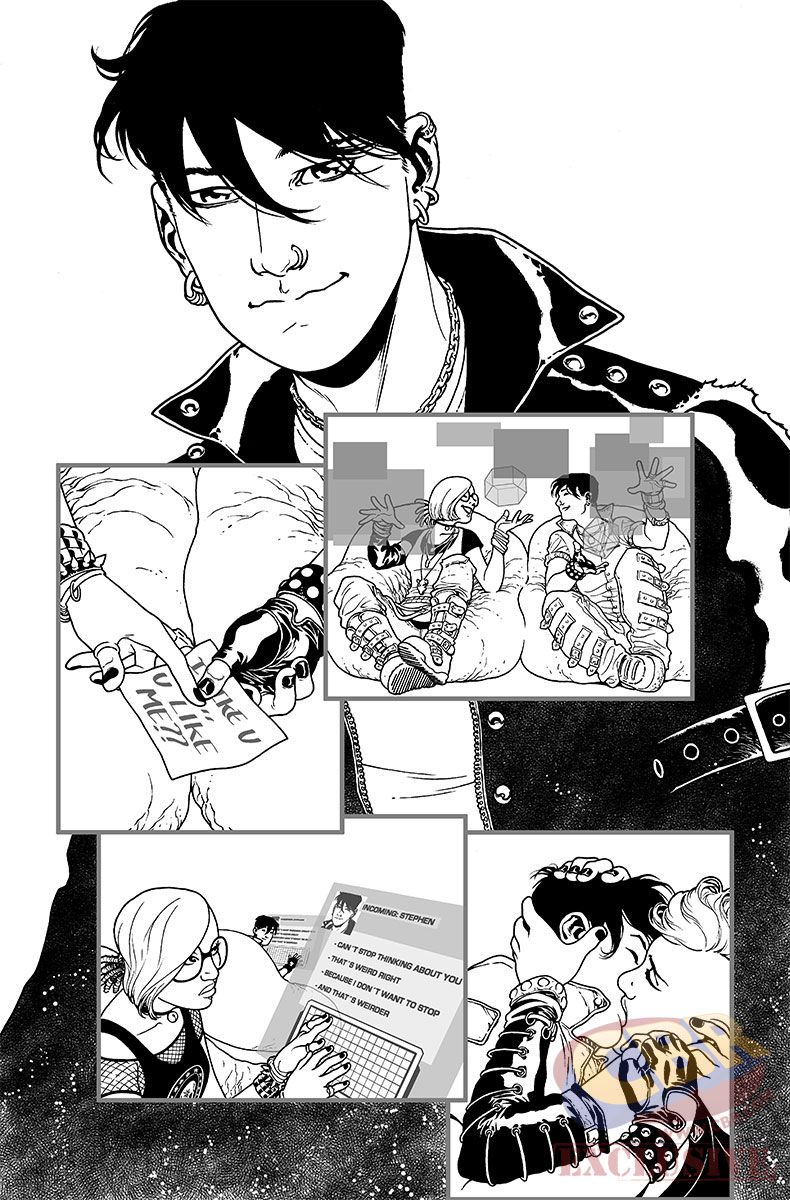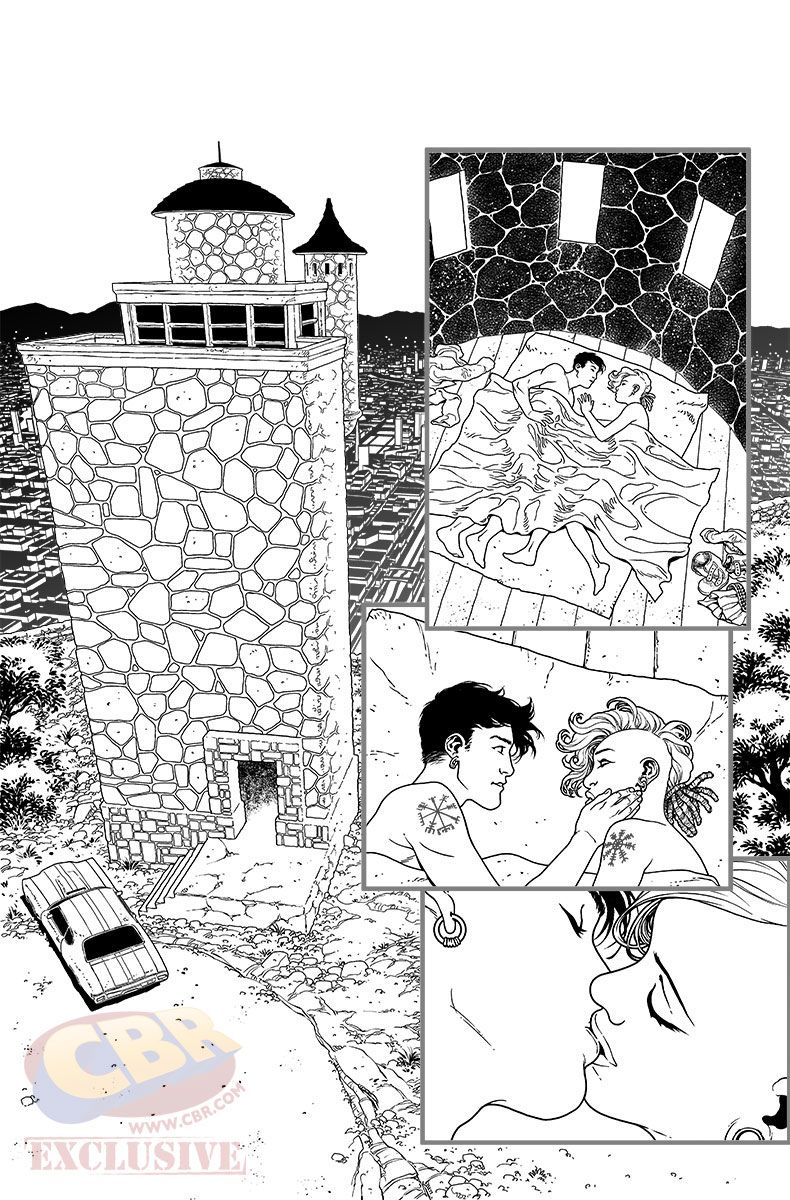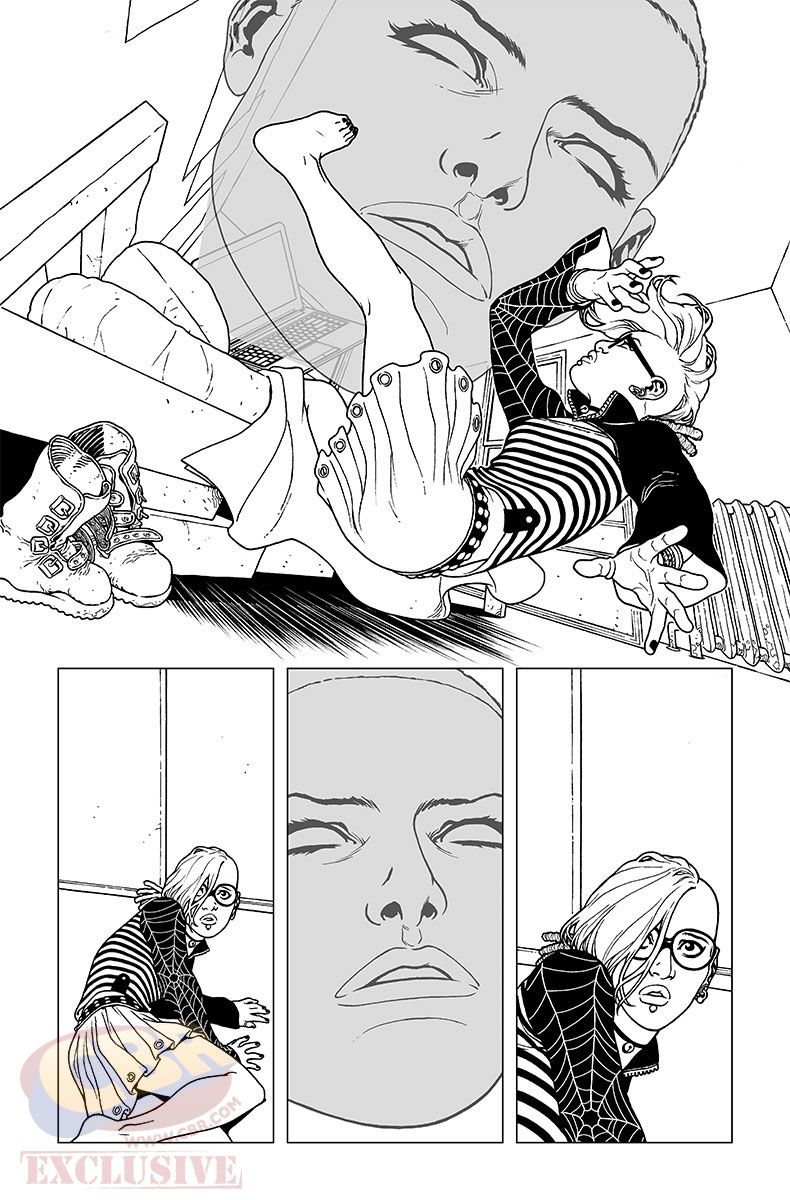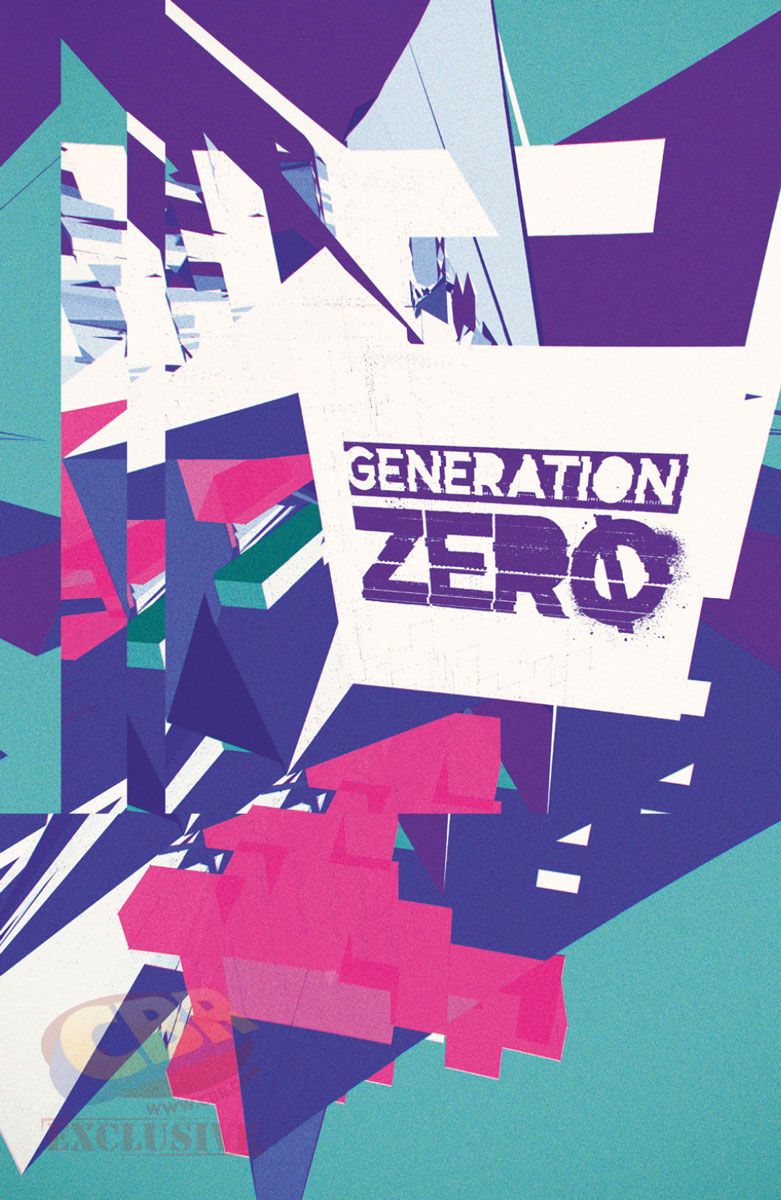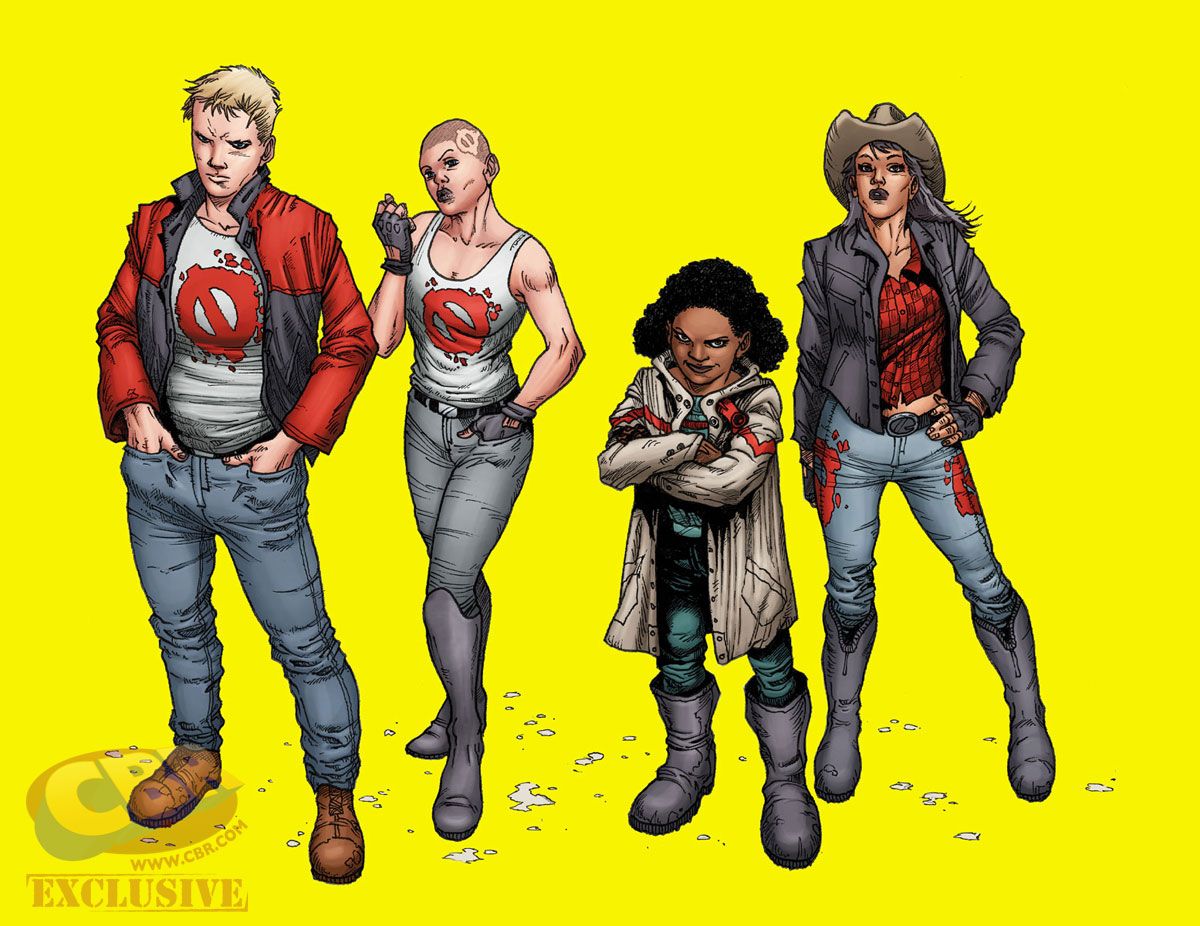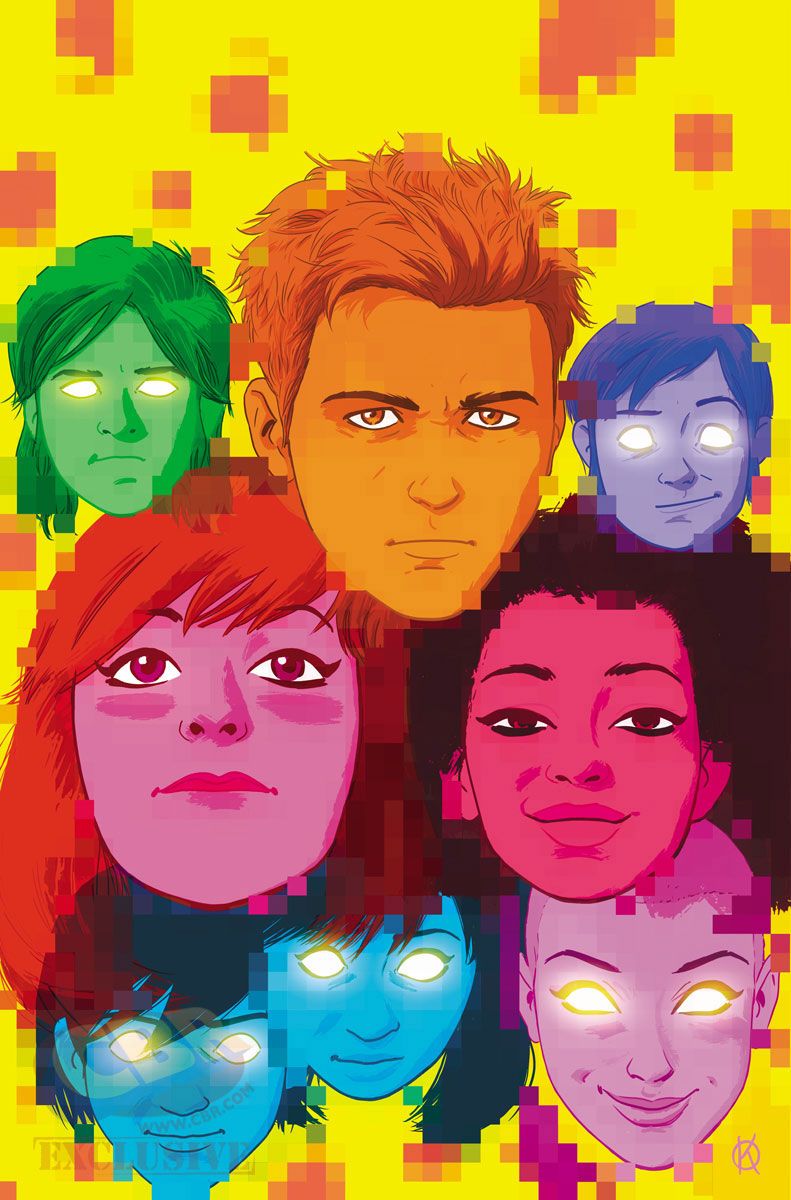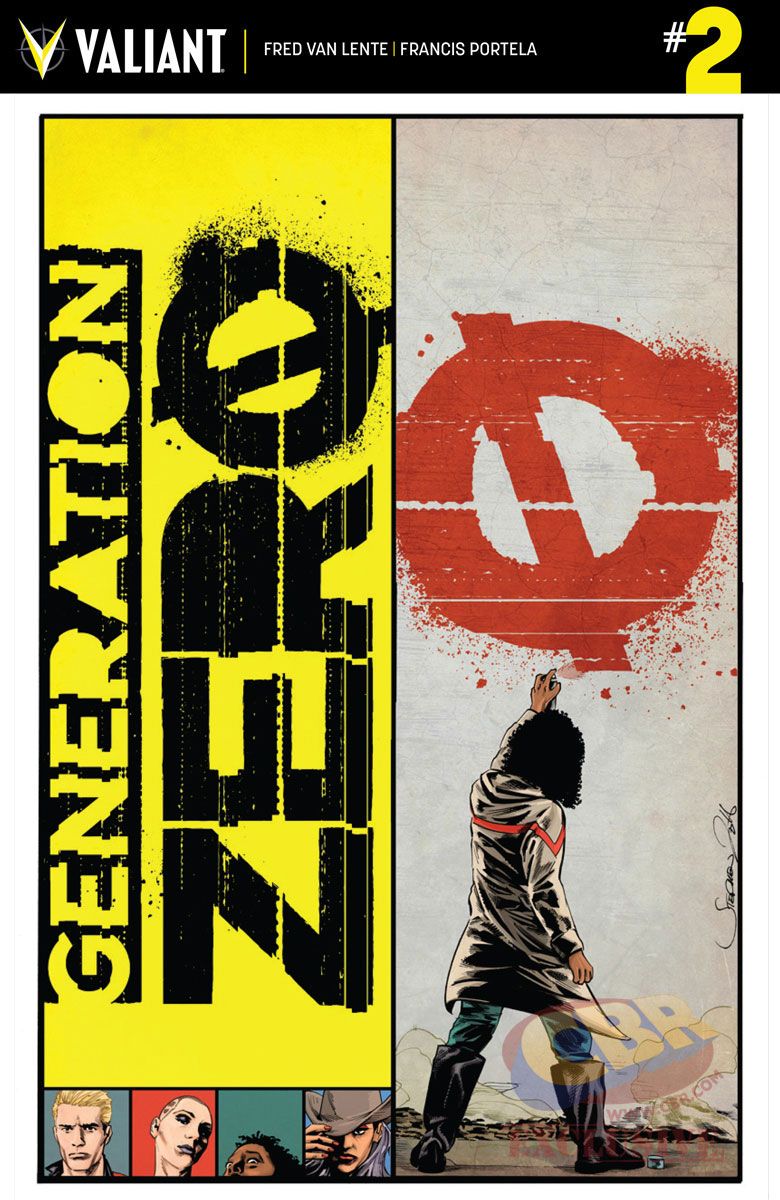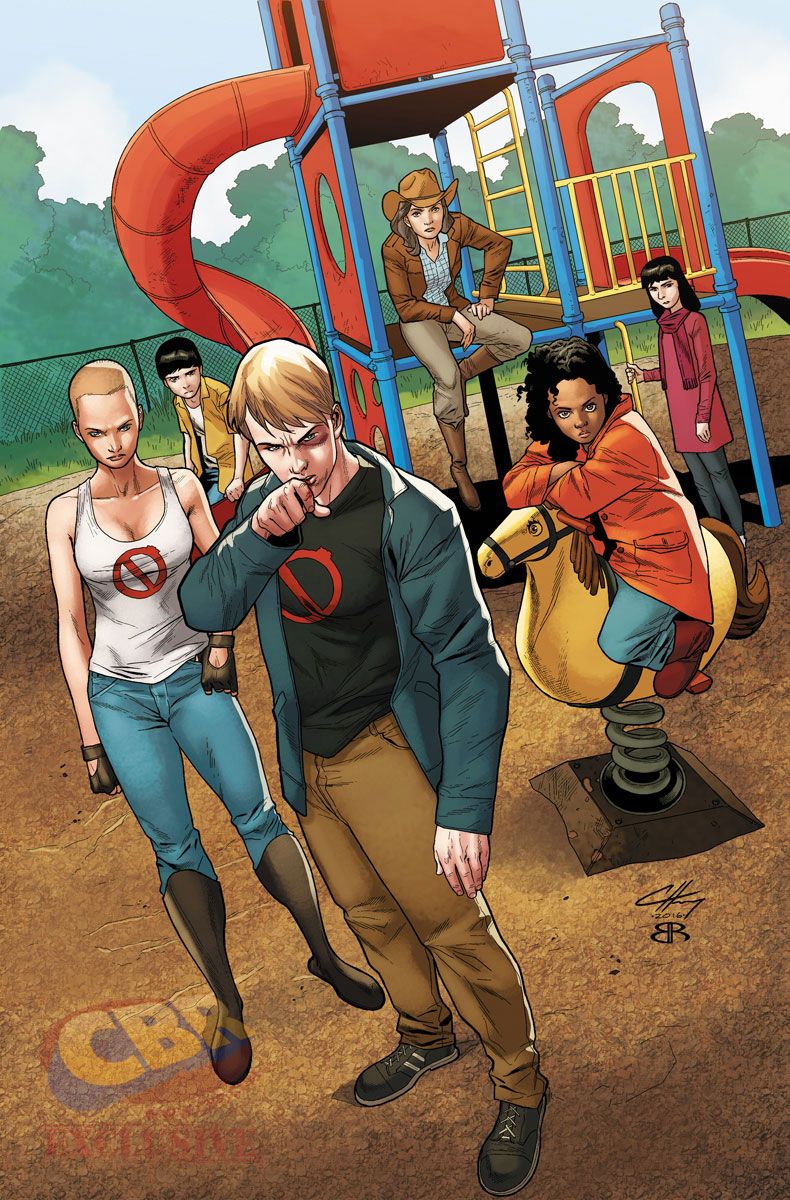"The Future of Valiant" has arrived, as a few weeks ago the publisher announced several new titles which will form a new and rather different line-up as we head into the second half of 2016. Things kick off with "Generation Zero," a new series from writer Fred Van Lente and artist Francis Portela. The story follows a young woman named Keisha who, after witnessing a tragedy, turns to the Internet and films a vlog asking for someone to help her -- only to find that her saviors are the last people she could've expected.
RELATED: Van Lente's Pleasantly Strange "Weird Detective" #1 Keeps the Twists Coming
First seen in the "Harbinger Wars" storyline, Generation Zero are a group of superpowered children who were part of the same secret agency who created Bloodshot. After escaping at the end of that storyline, the team go on the run and head out across America, bringing their own sense of justice wherever they turn. When they see Keisha's message... well, things go about as well as you might expect. For Van Lente, it's an opportunity to view the Valiant Universe from a totally new perspective. CBR News caught up with the writer for an early look into the lives of the next generation -- and an exclusive first look at Portela's artwork!
CBR News: The children of Generation Zero have been appearing throughout the Valiant Universe on and off following Harbinger Wars. What makes now the right time to bring them to the fore with their own series?
Fred Van Lente: Valiant really wanted to do a title about teens, and approached me about doing it because emotionally, I'm about 14. We thought about a couple options, and then I sort of settled on the most obvious one -- "Generation Zero." Joshua Dysart, Clayton Crain and Clayton Henry created them for "Harbinger Wars," and they've stuck around ever since because they're such great characters. Plus, that title is pretty damn awesome, right?
The characters are young children who have been through all manner of conditioning, mental and physical. For new readers, can you describe a little about who they are, what's happened to them, and their place within the Valiant Universe prior to the start of your series?
The Generation Zero kids were raised by the same nefarious defense contractor, Project Rising Spirit, which created Bloodshot. They're human weapons, and had no normal childhood in any sense you or I would understand -- they grew up on anonymous battlefields and see every situation as a military one. But now, they've escaped and roam the countryside, rescuing kids from impossible problems -- if those kids can find them in the shadowy corners of the Internet, that is.
How does Generation Zero function as a team? They're superpowered, but they're also still children -- what's their approach to "saving the day" and fighting back?
I like to describe this book as "Archie" meets "The Authority." The kids have all the emotional volatility of teenagers, with the destructive power of several silos' worth of nuclear missiles. They don't adhere to any morality or social norm we recognize, so when they see evil or bad stuff going down, their attitude is to destroy it as swiftly and mercilessly as possible. They're basically juvenile delinquent superheroes with a completely black-and-white view of the universe -- if you're not on their side, get the hell out of their way if you know what's good for you.
The solicitation mentions Keisha, a young girl who gets caught up with Generation Zero. What kind of a character is she? What motivates her, and what is she looking for?
Keisha is a young woman going to high school in a town called Rook, formerly a Rust Belt sinkhole that's been transformed by a seeming miracle into a technological wonderland of innovation. Her boyfriend Stephen started to tell her he had discovered the dark secret that lay at the heart of this so-called "miracle," before he died under mysterious circumstances.
Keisha reaches out to the "paramilitary youth rescue squad" (as Generation Zero styles itself) to solve the mystery. Not only is she able to contract them, they show up in Rook to take the case. And, since Keisha's father is the sheriff of the town, and she's summoned these unruly, super-powered delinquents, that may make for some uncomfortable family dinners.
What's the tone of the book going to be? I've seen you describe this as a YA series in interviews elsewhere, and there's the possibility this could be quite a political book, too.
I guess? I mean, it's more of a thriller than anything else. It's got a very "Twin Peaks" vibe, and the villains we see -- like the horrific Cornermen, who appear in #1 -- are pretty creepy. In many ways, I think Generation Zero should themselves be as frightening as the villains they fight -- they have so much power, and zero life experience.
You'll be working once more with Francis Portela for the book, whom you've worked with on various books at both Marvel and Valiant. As time has gone on and you've worked with Francis more, has your approach to scripting comics for him changed?
This is really the best work I've ever seen Francis do, and it's amazing to watch his development. It's been almost a decade since we did "M.O.D.O.K.'s 11" at Marvel, and now I'm just going to push him like never before because his design work, his layout and his characters are all at the top of the game.
My understanding is you're going to have the first few pages anywhere on this article and you'll be able to see your first glimpses of Keisha, Stephen and Rook itself and see exactly what I'm talking about -- so amazing!
What kind of atmosphere do you want to bring from the book? This seems like it has quite the sinister edge to it.
I've been reading a lot of manga lately, particularly Urasawa, and I want to get a "Twentieth Century Boys" feeling out of this -- with that joy and hope and magic of childhood with an overweening feeling of dread.
I was also super-impressed by this French video game, "Life Is Strange," that told a similar supernatural story about high schoolers in a small town. I was playing that while I was writing this, and there was definitely some cross-pollination there.
A through line for a lot of your work in comics has been that of conspiracy theory, myth and rumor -- from "Hercules" through "Archer & Armstrong," you've often looked at stories within stories, and how time shapes narrative. Do you feel Generation Zero, who exist in the series almost as a contemporary urban legend themselves, play into that as well?
Yeah, definitely -- that's a great way of putting it. I was telling the guys at Valiant when we were first starting out that I almost wanted to treat superheroes in this series like creatures of folklore -- partly just because Generation Zero are literally an urban legend when the series begins, something kids tell each other in whispers, but also in the sense that they're so beautiful but scary at the same time. Mortals don't often survive their encounters with them because they're just too much to handle.
Keisha finds out the hard way she may have let the proverbial genie out of the bottle by bringing them to Rook, and there may not be that much recognizable left of friends and family by the time they're done with it...
You've been writing for Valiant Comics for a fair while now, ever since you launched "Archer & Armstrong." How do you feel you've seen the Valiant Universe concept grow and change over the years, from the inside-out?
It's been great to see such a passionate fan base rise up around the brand. I think it's just a great sandbox to tell stories in, and I'm glad to tell a very very different one with "Generation Zero" than the ones I have been telling. The world needs more juvenile delinquent superheroes and I think Valiant is just the publisher to provide it.

